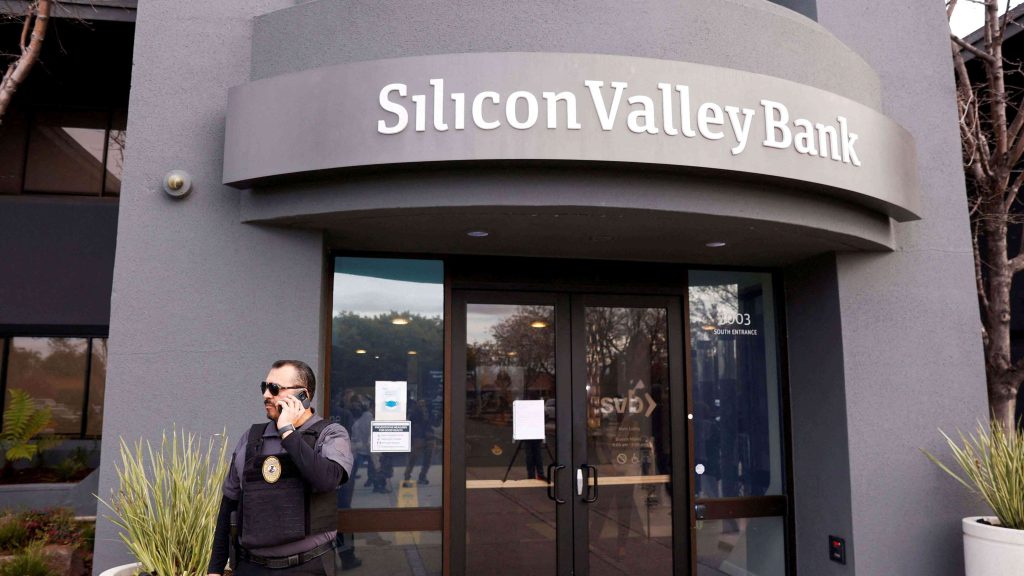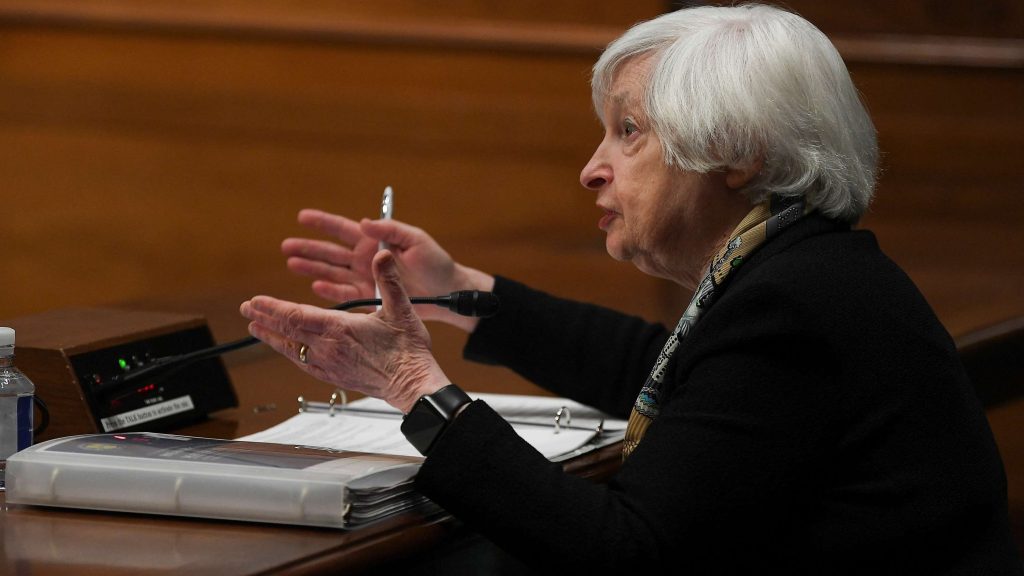
U.S. Treasury Secretary Janet Yellen said on Thursday that banking regulation and supervisory rules need to be re-examined in the wake of the Silicon Valley Bank and Signature Bank failures to ensure current banking system risks are addressed.
In remarks prepared for delivery to the National Association for Business Economics, Yellen also called for stronger regulation of the growing non-bank, or “shadow bank”, sector, including money market funds, hedge funds and crypto assets.
Yellen said a 2018 roll-back of bank capital requirements and stronger supervision for smaller and mid-size banks with assets below $250 billion should be re-examined.
“Any time a bank fails, it is cause for serious concern. Regulatory requirements have been loosened in recent years. I believe it is appropriate to assess the impact of these deregulatory decisions and take any necessary actions in response,” Yellen said.
She added that regulatory reforms put in place after the 2008 financial crisis have helped the U.S. financial system weather shocks, including the COVID-19 pandemic.
“But the failures of two regional banks this month demonstrate that our business is unfinished,” Yellen said. adding that the financial system was significantly stronger than it was 15 years ago.
“This is perhaps best illustrated by the fact that we’ve seen relative stability in the overall banking sector this month, even as concerns grew about specific institutions,” she said.
But Yellen said it was important that U.S. regulatory authorities examine whether the current supervisory and regulatory regimes “are adequate for the risks that banks face today. We must act to address these risks if necessary.”
Yellen’s remarks contained no specific proposals and she acknowledged that tighter regulation imposes costs and care should be taken to ensure the health and competitiveness of community and regional banks. But she added that such costs “pale in comparison to the tragic costs of financial crises.”
Yellen repeated comments last week that the Treasury, Federal Reserve and Federal Deposit Insurance Corporation were prepared to again use the same tools they used to protect depositors in the SVB and Signature Bank failures.
“And we would be prepared to take additional actions if warranted,” she added, without specifying steps that could be taken.

NON-BANK RISKS
Yellen called for more regulation to address risks emanating from non-bank institutions, including liquidity risks, and said rules should not allow risks to shift elsewhere in the financial system to avoid regulation.
Money market mutual funds and open-end funds are still susceptible to runs, Yellen said, which the Securities and Exchange Commission has sought to address through new regulatory proposals.
In hedge funds, which had nearly $10 trillion in gross assets in 2021, Yellen said she had concerns about the use of leverage by some funds, which could force them into a position of conducting “fire sales” of assets including Treasury securities during times of stress – sales that could spill over to other financial system participants.
The multi-regulator Financial Stability Oversight Council’s restored Hedge Fund Working Group will continue to monitor risks and develop policy recommendations, Yellen said.
She also said the Biden administration is continuing to study the potential for systemic risks from digital assets, an effort that began before the collapse of cryptocurrency exchange FTX.
Of particular concern are stablecoins, which invest in reserve assets to maintain a stable value against the dollar. Like traditional funds, they could also be forced into asset fire sales in times of stress, she said.
“A run on one stablecoin can lead to panicked runs on other stablecoins – causing even broader selloffs,” Yellen said, adding that Congress should pass legislation to establish a comprehensive prudential regulatory framework for stablecoin issuers and for other digital assets.
Yellen also said that a failure by Congress to raise the debt limit, leading to a default on U.S. obligations, was another financial risk that “could upend the lives of millions of Americans and those around the world.”
WASHINGTON (Reuters)
Inside Telecom provides you with an extensive list of content covering all aspects of the Tech industry. Keep an eye on our News section to stay informed and updated with our daily articles.